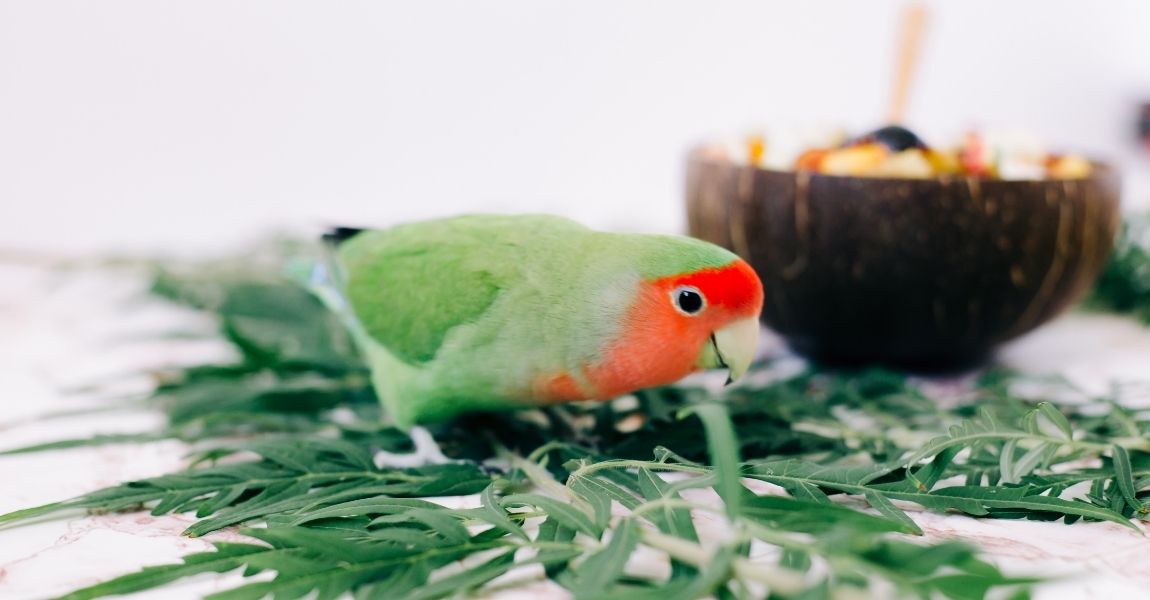Things You Must Know About Your Lovebird
Lovebird Species and Varieties:
Lovebirds belong to the genus Agapornis and are native to Africa. There are several species of lovebirds, including the Peach-faced Lovebird, Fischer's Lovebird, Masked Lovebird, and more. Each species has its own unique traits, colors, and vocalizations. Understanding the specific species and variety of your lovebird will help you cater to their specific needs and preferences.
Lifespan and Commitment:Lovebirds have a relatively long lifespan compared to some other pet birds. On average, they can live for 10 to 15 years, but with proper care, some lovebirds can live even longer. Owning a lovebird requires a long-term commitment and dedication to their well-being throughout their lives.
Social Nature:Lovebirds are highly social birds and thrive on interaction and companionship. In the wild, they form strong bonds with their mates and flock members. As a pet owner, you become their companion, and it's important to spend quality time with your lovebird to build a strong bond. Consider providing them with a same-species companion or spending dedicated time each day interacting, playing, and providing mental stimulation.
Housing and Environment:Lovebirds require a spacious cage that allows them to stretch their wings and move around comfortably. The cage should have horizontal bars for climbing and multiple perches at different heights. Provide them with a variety of toys and objects for mental stimulation and entertainment. Lovebirds enjoy chewing, so include safe and bird-friendly toys that they can shred and explore.
Diet and Nutrition:A well-balanced diet is crucial for the health and vitality of your lovebird. Their diet should consist of high-quality pellets specifically formulated for lovebirds, supplemented with fresh fruits and vegetables. Avoid feeding them foods that are toxic to birds, such as chocolate, avocado, caffeine, and alcohol. Provide clean, fresh water daily and ensure that their food and water dishes are cleaned regularly.
Vocalizations and Communication:Lovebirds are expressive communicators and use a combination of vocalizations, body language, and visual cues to convey their emotions and needs. They can chirp, whistle, squawk, and make soft cooing sounds. Paying attention to their vocalizations and observing their body language will help you understand their moods and emotions better.
Grooming and Health Care:Regular grooming is essential for your lovebird's health and well-being. This includes maintaining a clean cage, providing regular baths or misting sessions to keep their feathers clean, and trimming their nails and beak if necessary. Regular visits to an avian veterinarian for check-ups, vaccinations, and routine health care will ensure that your lovebird remains healthy and free from any potential illnesses.
Flight and Exercise:Lovebirds are active birds and require regular exercise and mental stimulation. Allow them daily out-of-cage time in a safe and supervised environment, encouraging them to stretch their wings, explore, and fly. Ensure that the room is bird-proofed to avoid any hazards or potential accidents.
Understanding Behavior and Body Language:Observing your lovebird's behavior and body language will help you understand their needs and emotions. They may display signs of affection, such as mutual preening, cuddling, and beak touching, to strengthen their bond with you or their companion. They may also exhibit signs of aggression or fear if they feel threatened or uncomfortable. Understanding their behavior will help you provide the appropriate care and respond accordingly.
Respect and Patience:Building a strong bond with your lovebird takes time, patience, and respect. Each lovebird has its own unique personality, and it's essential to understand and respect their individual preferences and boundaries. Approach them gently, use positive reinforcement techniques, and give them space when needed. With time, trust, and consistent care, you can develop a deep and fulfilling relationship with your lovebird.
In conclusion, lovebirds are fascinating and delightful companions that require proper care, attention, and understanding. By familiarizing yourself with their species, providing a suitable environment, offering a balanced diet, and spending quality time together, you can create a loving and nurturing relationship with your lovebird. Enjoy the joy and affection they bring into your life as you embark on this wonderful journey with your feathered friend.





